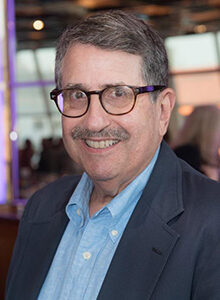Extraordinary Attorney Woo, the South Korean series about a brilliant, newly minted autistic lawyer, was among the most watched non-English shows on Netflix during 2022. Despite it being very entertaining and very sympathetic, it unsurprisingly generated controversy within the autism communities in both S. Korea and America.
The show’s first season, consisting of sixteen episodes, deals with an array of contemporary socio-legal issues, many similar to ours in today’s America. Examples are an alleged act of family violence by an autistic man, technology theft, accusations against a North Korean defector, a land use dispute which threatens a rural community, the unrelenting parental pressures on children to achieve in that society, and gender discrimination, among others.
Woo Young-woo’s autistic behaviors and interactions are the thread extending across the episodes which permit viewers to witness her behavior and gradual development within the context of her work at Hanbada law firm. Young-woo’s colleagues, by virtue of her working with them on the legal team, come to understand, adapt to, and ultimately, support her. Her unusual abilities of memory and thought contribute to the firm’s legal victories despite her eccentricities. Young-woo’s budding romance provides the script’s writer an additional opportunity to offer insight into her inner life and how that shapes her social life.
The show and Park Eun-bin, the lovely young actress who plays Young-woo, have won high acclaim in S. Korea for content, acting, and writing. Park explained her initial reluctance to accept the part being aware of her moral responsibility not to be hurtful through her portrayal of Woo. Once she, the writer, Moon Ji-won, and the director, Yoo In-shik, decided to move forward, they consulted with a variety of experts and read widely. Park makes clear that she did not try to imitate any specific autistic person but rather worked to integrate what she learned into her own interpretation. That said, she does portray many of the stereotypical mannerisms, preoccupations, and obsessive thought processes associated with autism. The creative visual way by which her inner thought processes are presented made me think of Temple Grandin’s description of her visual thought. Woo’s very slowly unfolding romance educates viewers about how matters related to touch, self-referential thinking, and intimacy are experienced by autistic individuals and impact those in their sphere.
Keeping in mind that the show is meant as entertainment and not as a documentary, there have been reviews published praising it for bringing the question of how autistic individuals are viewed by and integrated into S. Korean society where shame often smothers discussions of disability even more than in America. Others have leveled criticism for the producers’ failure to involve autistic individuals or include an autistic person as the lead actress. However, most of the comments I have read, including those from autistic individuals who hold advanced degrees, have been far more positive than negative regarding how Extraordinary Attorney Woo portrays autism to those yet to be introduced to the constructs of neurodiverse vs. neurotypical individuals. The show does this by familiarizing us with the inner workings of autistic thought rather than by pathologizing it. Woo, who did not have access to treatment, benefitted by being raised by her devoted father and from the support and coaching of colleagues who came to understand and value her. Interestingly, I read that a more literal English translation of the title from Korean would have been “Weird Attorney Woo.” Substituting “extraordinary” for “weird” better provides a sense of Young-woo as being both different in the sense of odd to those unfamiliar with autism and at the same time gifted as evidenced by her special mental facilities.
Thinking back over the past half-century about how autistic people have been increasingly appreciated and integrated, I highly recommend Extraordinary Attorney Woo to the readers of Autism Spectrum News, a publication dedicated to educating and guiding autistic individuals and their families about how to address the obstacles which stand in their way of experiencing a fully realized life.
Dr. Perlman is a member of the Board of Mental Health News Education, the nonprofit organization that publishes Autism Spectrum News. His memoir, Rearview: A Psychiatrist Reflects on Practice and Advocacy In a Time of Healthcare System Change, was published in 2021. He is a past President of the New York State Psychiatric Association and past Chair of the NYS Mental Health Services Council.
The information, opinions, and views presented in Autism Spectrum News (ASN) reflect the views of the authors and contributors of the articles and not of ASN, the ASN Editorial Board, or its publishers. To view the full ASN Disclaimer of Endorsement and Liability, click here.






[…] talented young surgeon with autism and savant syndrome, and the captivating Korean drama “Extraordinary Attorney Woo“, telling the story of an autistic lawyer raised by her single father. These shows not only […]
I struggle with settling for some of the violent, promiscuous, or inane movies and programs on American television. In The Amazing Attorney Woo (perfect title) I found a highly professional interpretation of stories containing intelligent references to humans striving for meaningful lives, for justice, in life-changing circumstances. American tv should learn (thank you Netflix) what an educated audience really wants.
We do learn that we are all disabled, all want to be loved and respected, and all of us can change to be better and more empathetic people.